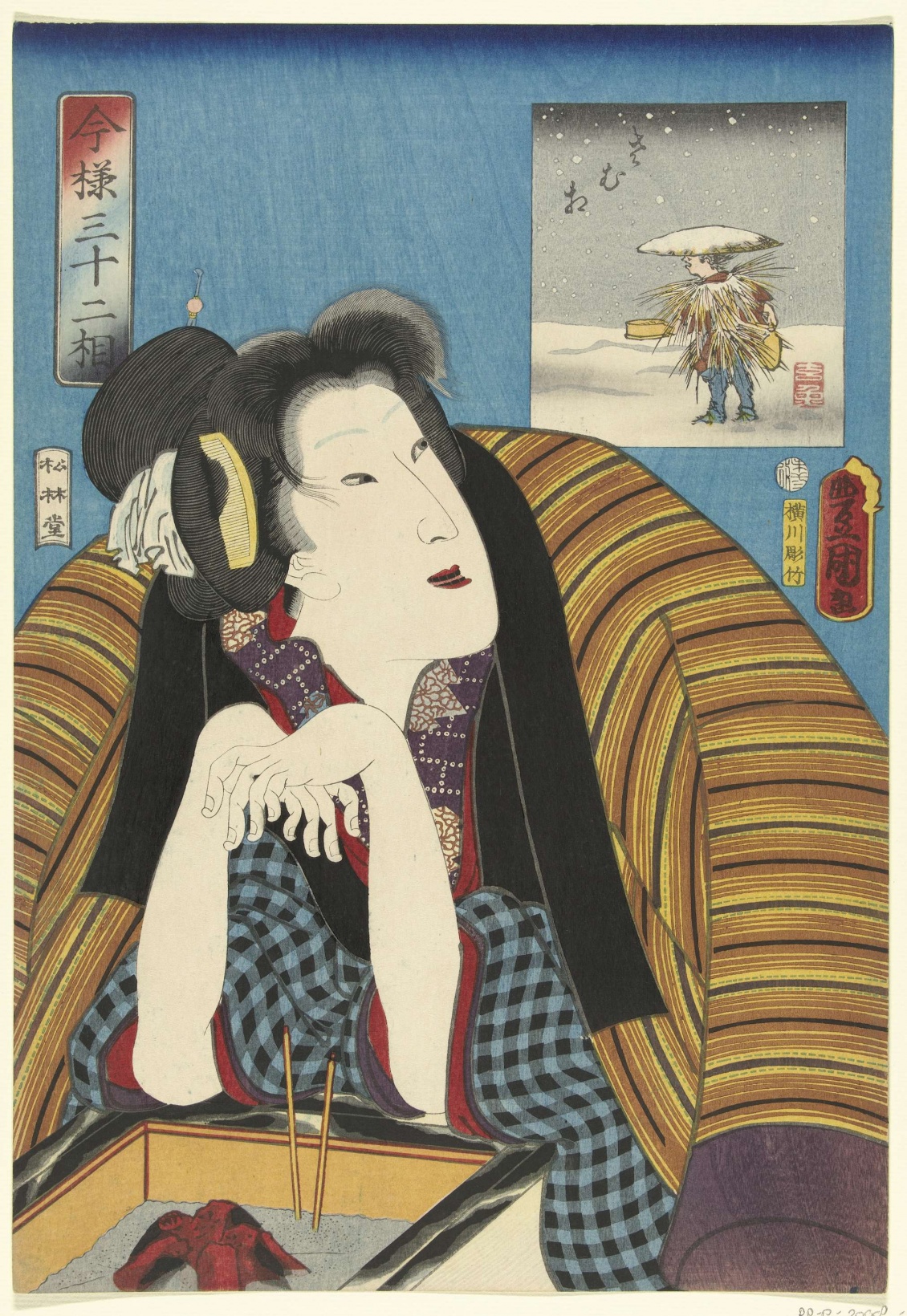Conf. Guide: Art Lover
Vrouw, de handen warmend bij een hibachi, Kunisada (I) , Utagawa, Yokogawa Takejiro, Fujiokaya Keijirô, 1859. Courtesy Rijksmuseum, Amsterdam.
“Seizing an Alternative” Conference Guide for the Artist and Art-lover
Whitehead’s skill in detailed analysis and in synthetic construction of ideas is unexcelled in human history. But part of his greatness was his recognition that we live more from our feelings that from our thought. Indeed, he considered thought a kind of feeling — a relatively rare one. He also recognized that our emotions are often shaped by the aesthetic aspects of our experience, and recognized the great importance of the arts. One of his students, Susan Langer, wrote Philosophy in a New Key, which richly connects the arts with Whitehead’s basic conceptual scheme. It is appropriate that the program of a Whitehead-inspired conference culminate in the arts.
Some academics may resist introducing song into a conference relating to a great intellectual. As a Whiteheadian, however, I want not only to describe the world but also to change it. I want people’s emotions to be drawn into the service of the larger truth. Pete Seeger, inspired by Whitehead, is for me a great model. At the conference, we will hear and sing his music in our plenary gatherings. Local bands will play and sing for us around the campus. Many of us have deep feelings of grief about what is happening to our world. We look to the arts to help us face the reality of loss, work through the grief, and find new joy in doing what can still be done.
The arts have never capitulated to the reductionist, determinist, view of nature. Whitehead views “creativity” as the “ultimate.” That is, for anything to be at all is for it to be an instance of creativity. There is a sense in which each event creates itself out of the resources the world provides for it.
Artistic creation is a particularly rich expression of this universal truth. Many artists can understand themselves in this account. The very act of being creative is a kind of defiance of the dominant, deterministic model that shapes the university and so much of the world. Artists frequently undertake to give expression to just those features of the world that the dominant model obscures. Art is more successful than rational discourse in overcoming the alienation from nature that so deeply affects us all. Whiteheadians typically find themselves to be in alliance with artists.
Obviously, a whole conference — larger than this one — could be devoted to the arts. The few tracks we have included in the conference all illustrate how the creativity of the arts can encourage the creativity of the wider community, and how the creativity of the community can express itself in the arts.
The issue is not so much how the arts should change so as to be supportive of ecological civilization, but how they are already active in doing so. Accordingly, these tracks may be the most celebrative in the conference. Of course, the rest of us remain eager that there be deeper reflection about how the impulses supportive of life that are found throughout the arts may gain an increased role in society at a time when they are so badly needed.
Artists and art-lovers, however, are not confined to Section XII, titled “The Transformative Power of Art.” Artists draw inspiration from many sources. Developments in modern and postmodern science have played a great role in art, and through art may help to liberate all of us from the continuing control of sensory empiricism and value-free descriptions.
The relation of the arts and spiritual traditions has always been close. Artists today may be inspired by indigenous traditions, by new explorations of the relation of body and spirit, or by the new discovery that compassion can be taught, even quite quickly. Artists may clarify their goals and learn new ways of achieving them through involvement in movements like these.
Perhaps some artists will be intrigued to learn that there is a philosophy so congenial to their vision and so supportive of their way of embodying it. They might enjoy hearing the discussion between Whiteheadians and other contemporary philosophers. Or they might enjoy the introductory course, which locates Whitehead’s thought in the broad history of ideas and then expounds some of its central features.
Pando Populus has already attracted artistic talent. We hope that through the conference the community of process thought and the community of artistic creativity will forge new bonds. Choose a course or a track that will support that goal!
